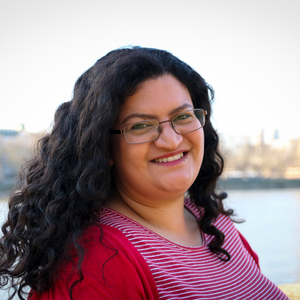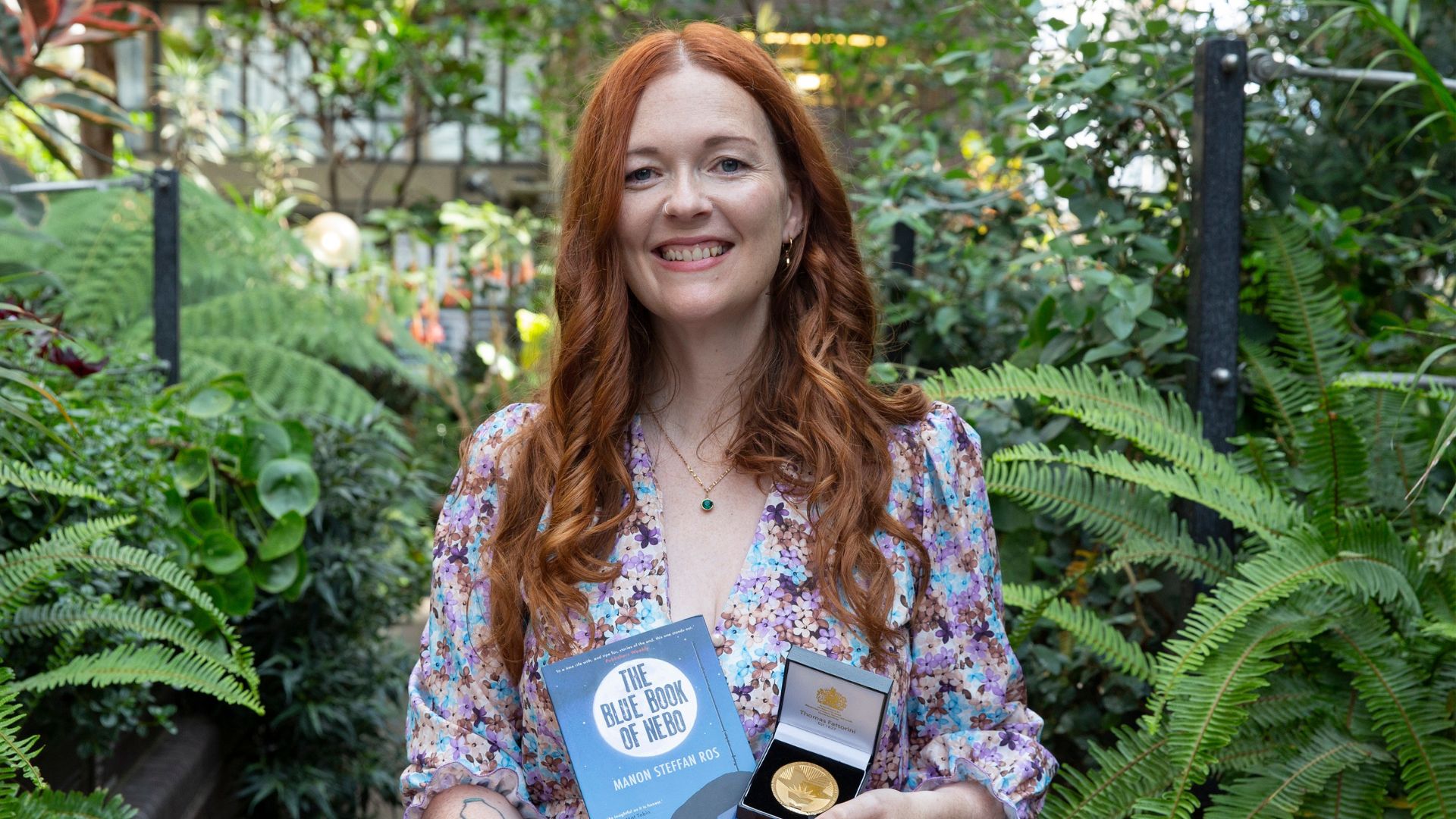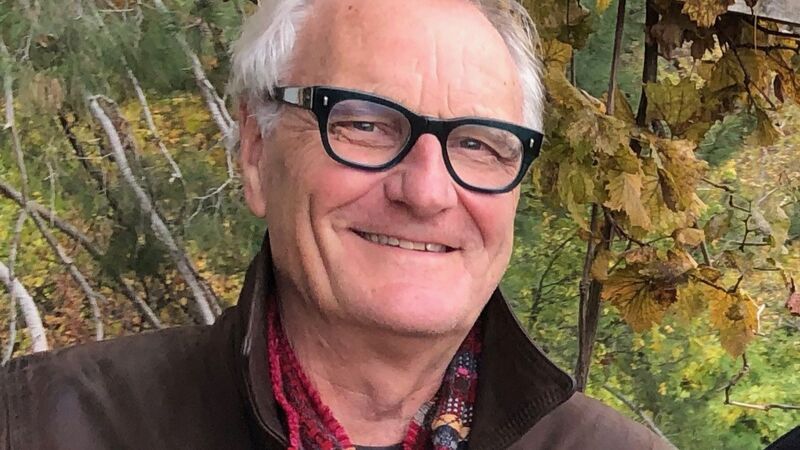You are viewing your 1 free article this month. Login to read more articles.
Manon Steffan Ros in conversation about her Carnegie-winning The Blue Book of Nebo
 Caroline Carpenter
Caroline CarpenterCaroline is deputy features editor at The Bookseller and chair of the YA Book Prize, as well as being a co-host of children's book radio ...more
Manon Steffan Ros’ award-winning book was originally published as an adult title in Welsh. It now looks set to reach a much wider audience.

Caroline is deputy features editor at The Bookseller and chair of the YA Book Prize, as well as being a co-host of children's book radio ...more
"It’s such a shock and such an honour,” says Manon Steffan Ros of her Yoto Carnegie Medal for Writing win. Ros’ apocalyptic YA novel The Blue Book of Nebo (Firefly Press) was announced as the recipient of this year’s award at London’s Barbican Arts & Conference Centre on Wednesday 21st June. She recalls reading books from the library as a child and recognising that “many of them had this word ‘Carnegie’ on them”, which she came to regard as a stamp of quality. “To have my book listed among those winners, I can’t quite believe it.”
Originally published as a Welsh-language adult novel ( ) in 2018, it tells the story of a son and his mother as they adapt to life in the aftermath of a nuclear disaster, writing down their thoughts and memories in a blue notebook. Although it feels like a very timely premise in the wake of the Covid-19 pandemic, the inspiration came from Ros’ own childhood. She explains: “My parents used to take us to protests nearly every weekend with the Welsh Language Society and CND. I had —and have—a great fear of any kind of nuclear disaster, but also any erasure of the language which I speak with my parents and my children. Those two things came together in this book.” She adds: “I tend to write from fear. If I’m afraid of something, I find that if I write about it, I come to understand it a little bit better… I’ve written my worst nightmare and tried to find hope in it.”
I decided to make the Welsh language into a little bit more of a theme in the English language version
Though a lot of the ideas in the book had been marinating in Ros’ head for years, the story was written in just three weeks as her winning entry for the National Eisteddfod of Wales’ Prose Medal in 2018. She says: “I think it was a good thing for me to have that time constraint, because otherwise, I would have tried to bulk it out. I’d have messed about with it a little bit too much.” Ros translated the book into English herself, changing a few things during the process. “I decided to make the Welsh language into a little bit more of a theme in the English language version. I wanted to explore why some Welsh people don’t feel comfortable writing in their mother tongue.”
The Blue Book of Nebo is the first book in translation to win the Carnegie Medal, which is “really important” to the author. She adds: “Reading teaches you empathy…. and when you bring in different languages, you learn so much more and you’ll learn to empathise with a wider array of people and ways of living.” During our conversation, she admits that she “didn’t know if it would work in translation” because there is “so much Welsh and Welsh culture in it”. However, one of the “great joys” since the English language version has been published has been finding that “people are actually not averse to reading about other cultures [and] Welshness… That’s taught me a great lesson.”
I can’t quite imagine my book existing in those places. But it’s really interesting, and a couple of comments have made me reframe my own work in my head
Though Llyfr Glas Nebo has been out for a few years now, the Carnegie nomination has increased its reach. “It’s just now in these last couple of months, I’m seeing tweets [about it] from schools in faraway places,” says Ros. “I can’t quite imagine my book existing in those places. But it’s really interesting, and a couple of comments have made me reframe my own work in my head.” She feels that a global pandemic happening shortly after the book’s release has made the story resonate more deeply with readers. The comparisons between life during lockdown and the characters’ situation made her “quite uncomfortable to begin with”, but she acknowledges: “I guess it came out at the right time and people could empathise with the characters to a certain degree.”
Reflecting on what this “really exciting” moment might mean for her future career, she has “no idea what to expect”. She says: “The great impact of something like this is that it gives me the freedom and the time and the money to carry on doing what I’m doing, because to be able to work as a writer is honestly such a huge privilege. I get up every day and I want to write… That’s my hope for it—that I can carry on doing exactly this.”









